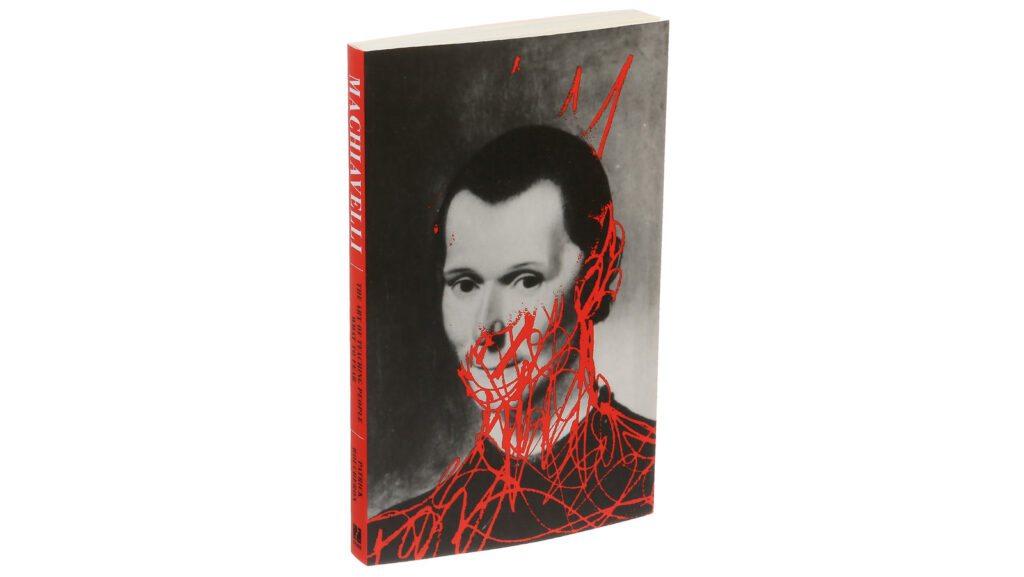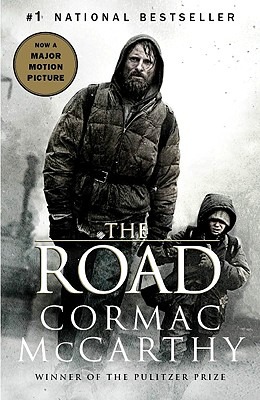Book Review: Machiavelli – The Art of Teaching People What to Fear (Patrick Boucheron)

Well, I haven’t heard anything negative or anything after the first book review, so I’m plowing forward and jumping into the second book review here for the blog (well, third overall, but second non – beer related). Going to make some changes to the book reviewing process this time around (and going forward) similar to how the beer reviews are setup. Like a scientific process if you will.
Changes to the Book Reviews
Similar to how the beer reviews on the blog here have a set style to them, where I give some background information, some lead up to the review, the information on the beer (provided by Untappd), and recently I also added a section devoted to the brewery behind the beer; I will do the same for the book reviews now on the site.
I’ll give a little prelude to the review itself, like why I chose this book, how I came about having it to read it, etc. Any contextual information, etc. Then go into a bit of a background on the author, any of his or her other works, if I’ve read him or her before, etc. Followed by the blurb of the book (provided by GoodReads or Amazon), and from there go into my actual review.
My actual reviews will follow a somewhat similar pattern, but not always be the exact same. For my beer reviews I usually broke it down into paragraphs of “appearance, aroma, taste”, where with the book reviews I might break it down into some paragraphs that might follow from one review to the next, but not always. Especially in different genres or when reviewing fiction vs. non-fiction.
The Background
So let’s get right to it; whats the background of the book and how I came to read it. Well, I finished the previous book (Wit’s End by James Geary) and was looking for a quick book to read on my bookshelf, and one in the vein of philosophy, and non-fiction, and deep thinking books. Or at least a book that would make me think, but also be a quick read. These are the ones that always make me feel smarter than I am (not a hard task by any means) because their borderline deep, and I can read them fast. So I feel good about myself.
I had picked this up at the Barnes and Nobles in Camp Hill, without reading it or really looking at it, just knowing Machiavelli and interested in reading a biography of him. Giving me a gift card to a bookstore is dangerous, and I shouldn’t be allowed in a bookstore without adult supervision. I’ll walk in with a 25$ gift card, and walk out 300$ less in my wallet. Guaranteed.
Niccolò Machiavelli has always been a figure and a person of interest for me. Little is known about him and he just has this air of mystery, enigma, and a convoluted history due to how his name is used in modern times. Could he really be as ruthless as he seems due to ‘The Prince’? Could he be as cutthroat as we’ve made him out to be? Is Machiavelli the essence of Machiavellian or Machiavellianism?
Machiavelli
What all do we know about Niccolò Machiavelli? Not a whole whole lot really. But, you know you must an interesting person to say the least, when they eponymous your name. Specifically with the way Machiavellianism or Machiavellian is used in modern times. Before going into the book in question, a little background on Machiavelli, as per his Wikipedia page:
Niccolò di Bernardo dei Machiavelli (/ˌmækiəˈvɛli/, also US: /ˌmɑːk-/; Italian: [nikkoˈlɔ mmakjaˈvɛlli]; 3 May 1469 – 21 June 1527) was an Italian Renaissance diplomat, philosopher and writer, best known for The Prince (Il Principe), written in 1513.[5] He has often been called the father of modern political philosophy and political science.[6]
For many years he served as a senior official in the Florentine Republic with responsibilities in diplomatic and military affairs. He wrote comedies, carnival songs, and poetry. His personal correspondence is of high importance to historians and scholars.[7] He worked as secretary to the Second Chancery of the Republic of Florence from 1498 to 1512, when the Medici were out of power.
Machiavelli’s name came to evoke unscrupulous acts of the sort he advised most famously in The Prince.[8] Machiavelli considered political battles, not through a lens of morality, but as though they are a board game with established rules. His experience showed him that politics have always been played with deception, treachery and crime.[9] He also notably said that a ruler who is establishing a kingdom or a republic, and is criticized for his deeds, including violence, should be excused when the intention and the result is beneficial.[10][11][12] Machiavelli’s Prince was much read as a manuscript long before it was published in 1532 and the reaction was mixed. Some considered it a straightforward description of the evil means used by bad rulers; others read in it evil recommendations to tyrants to help them maintain their power.[13]
The term Machiavellian often connotes political deceit, deviousness, and realpolitik. Even though Machiavelli has become most famous for his work on principalities, scholars also give attention to the exhortations in his other works of political philosophy. While much less well known than The Prince, the Discourses on Livy (composed c. 1517) is often said to have paved the way of modern republicanism.[14]
Niccolo Machiavelli (Wikipedia)
Machiavelli is best known for his two works – The Prince and Discourses on Livy. He also wrote (his own, and in no relation to Sun Tzu’s) The Art of War. It is assumed much of The Prince is based on the life of Cesare Borgia, son of Pope Alexander VI. Mario Puzo‘s last novel (slightly unfinished at his death, but finished after his death) was about the Borgia family – Pope Alexander VI, Lucrezia, Cesare, Giovanni, and Machiavelli also played a small role as a side character in the novel. The book was called ‘The Family‘.
Patrick Boucheron
GoodReads doesn’t have a whole lot of information about the author Patrick Boucheron. But he does have his own Wikipedia page – Patrick Boucheron. From his Wikipedia page:
Patrick Boucheron (born 1965) is a French historian. He previously taught medieval history at the École normale supérieure and the University of Paris. He is a professor of history at the Collège de France. He is the author of 12 books and or the editor of 5 books. His 2017 book, Histoire mondiale de la France (Global History of France), compiled work by 122 historians and became an unexpected bestseller, with more than 110 000 copies sold.[1] From 2017 to 2020, he hosted Dates in World History, a TV program of 10 episodes which explored different important dates in world history.
Patrick Boucheron (Wikipedia)
Most of his works are currently only in French, although he has two published in English (with the use of a translator). His English published works include: France in the World: A New Global History, and Machiavelli: The Man Who Taught the People What They Have to Fear.
Book Review: Machiavelli – The Man Who Taught the People What They Have to Fear
First, before going into the review, I’m going to provide the background information (basically the back of the book blurb) provided by GoodReads. Similar to the beer reviews on the blog here, where I would give the Untappd description and various other stats (ABV, IBU, style, etc.).
GoodReads blurb: “In a series of poignant vignettes, a preeminent historian makes a compelling case for Machiavelli as an unjustly maligned figure with valuable political insights that resonate as strongly today as they did in his time.
Whenever a tempestuous period in history begins, Machiavelli is summoned, because he is known as one for philosophizing in dark times. In fact, since his death in 1527, we have never ceased to read him to pull ourselves out of torpors. But what do we really know about this man apart from the term invented by his detractors to refer to that political evil, Machiavellianism?
It was Machiavelli’s luck to be disappointed by every statesman he encountered throughout his life–that was why he had to write The Prince. If the book endeavors to dissociate political action from common morality, the question still remains today, not why, but for whom Machiavelli wrote. For princes, or for those who want to resist them? Is the art of governing to take power or to keep it? And what is “the people?” Can they govern themselves? Beyond cynical advice for the powerful, Machiavelli meditates profoundly on the idea of popular sovereignty, because the people know best who oppresses them.
With verve and a delightful erudition, Patrick Boucheron sheds light on the life and works of this unclassifiable visionary, illustrating how we can continue to use him as a guide in times of crisis.”
This is a very quick read. Each chapter is roughly two to three pages, and also includes a picture, typically a full page picture (sometimes less). There was blank spaces for segment breaks, as well as some chapters. Its only 159 pages, counting index, preface, and photo credits. Its also not the full height and width of a hardcover but obviously larger than a mass market paperback.
While I say this, it doesn’t necessarily take a way from the book and the work done; but it also leaves you feeling like its just a series of vignettes and is kind of “dumbed down” almost in a way. Like this is much more for the layman and the person who goes, “Oooh, Machiavelli, I’d like to read about him” ……which is I guess what trapped me and lured me in when I saw the book on the shelf at Barnes and Nobles. And lord help us, we all know I’m a layman, I am far from professional or any real critic or anything.
I was looking for a bit more background information on Machiavelli, as I feel this is always a lacking area in the common knowledge of him as a person. His philosophy is fleshed out, and has been gone over and over and over by hundreds (if not thousands or even tens of thousands) of scholars, but there’s a bit of a dearth in knowledge of who he is, and how he came to be. There is some in this, there’s a modicum of background tidbits and pieces and some juxtapositions of that with his landscape (ie. the city states of Italy).
Speaking of Italy, this is a fascinating time in the history of Italy. The city states of Italy in the late 1300s, 1400s, and 1500s is a fascinating look at politics and fighting between small governments, whilst there are these much bigger and powerful monarchies hanging around (France, England, Germany, etc.). Its like a smaller version of Risk, and is setting up the stage for how a larger game of Risk would be played with Europe come World War I (and World War II).
The underlying theme that runs current through the thirty small chapters is that Machiavelli is much aligned and isn’t the “cutthroat monster” we have been pretty much led to believe by historians and history itself, by the way his name is used eponymously and how he is portrayed in fiction and even by scholars themselves. As the cover shows, (a grafitti’d Machiavelli, with devil horns), Machiavelli is believed and portrayed as this cutthroat man who believed “the ends always justify the means” and almost a “anything goes” attitude towards princes, and kings, and those in power; as a form of keeping their power, and making sure the government they are in control of continues on.
Whilst the work does give a general rough chronological outline of his biography, the overall theme is still about the timelessness to Machiavelli. That he speaks to the future (and our present) as much as he spoke to the people of his time. Boucheron believes he speaks more to our present and our future than he actually did to the people of Italy in the 1500s. That he is a classic and timeless read that one must do regardless of what century he finds himself in.
The opening preface makes quite a bit of reference to Donald Trump, George Orwell and his 1984, and how reading classics like 1984 and The Prince in context to our current times helps us establish our thoughts and opinions of the current climate (political, and otherwise) that we find ourselves in. Using the past and future as a way to establish our own thoughts on our own present.
Machiavelli did have a lot to teach about fear, its usage, its power, its conception, its control, its psychological importance, etc. He had as much to teach us about it as he did the Princes and the rulers. And as Boucheron showcases here, he had much more to show us – the common folk, the peasants, the non – rulers – about fear than he did the Cesare Borgias and Medicis of the world. And that is why we still read (and still need to read) Machiavelli in today’s world, and in today’s context.
My LibraryThing rating: ***3/4
My GoodReads rating: ****
Global Average GoodReads Rating: 3.68 (as of 4.7.21)
Thank you everyone for reading my second non – beer related article here on the blog, and the second non – beer related book review. Below is a list of the other current book reviews I’ve done here on the blog (one is a beer related book). Hopefully people appreciate these non – beer related articles. Hopefully can expand this to much more, as well as start writing much more on the beer side of things as well. So there is plenty here for people to see of all types and interests. Thanks for reading and hope you have a tremendous day!
Cheers.
-B. Kline
Our other Book Reviews:
Thank you for visiting our blog. Please make sure to follow, bookmark, subscribe, and make sure to comment and leave feedback and like the blog posts you read. It will help us to better tailor the blog to you, the readers, likes and make this a better blog for everyone.
Please be sure to follow us on our social media accounts – Facebook, Facebook Group, Twitter, Instagram, YouTube, and Influence. Please be sure to also follow, like, subscribe to the blog here itself to keep updated. We love to hear from you guys, so be sure to leave a comment and let us know what you think!







